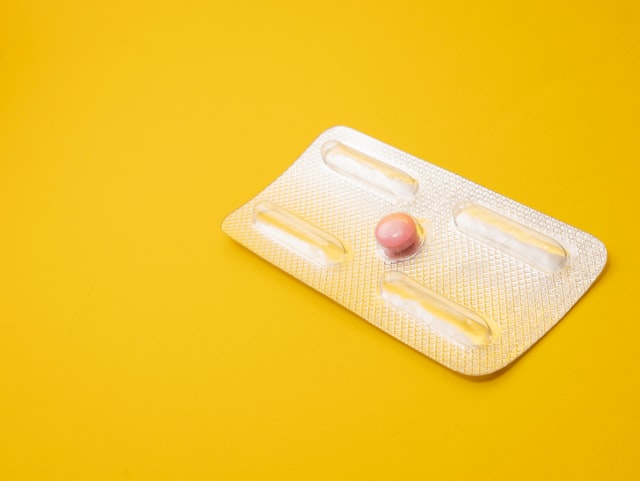Many women do not want to get pregnant till a certain age while others may prefer not to ever have children.
One of the most accepted methods of birth control is the oral contraceptive pill. The pill is a hormonal method that works by preventing a woman’s body from producing an egg. A pregnancy cannot take place when there is no egg for the sperm to fertilize.
However, there are some possible side effects to birth control pills, and they are quite common, although they do vary for each individual.
This article is part of a comprehensive set of articles on Contraceptive Pills.
Are contraceptive pills safe?
Contraceptive pills (or birth control pills) are generally safe and have been around for over 50 years. Millions of people use it and most do not experience any serious side effects from taking it. In all probability, you can take contraceptive pills without any issues.
Nonetheless, there are certain side effects and risks that should be considered.

Side effects of birth control pills
Because the pill is a hormonal method to prevent pregnancy, it can lead to several side effects (although most may be temporary and not serious).
Spotting between periods
Spotting or vaginal bleeding between menstrual cycles is a common side effect. It is due to one’s body adjusting to the change in hormone levels, and thinning of the uterus lining. Spotting can look like a brown discharge or light bleeding. To reduce this side effect, take the pill each day at the same time, as advised.
Nausea
Some women may experience nausea when they first start on the pill. Taking the pill at bedtime or after some food can help alleviate this symptom.
However, nausea should go away after a while. Speak to a medical professional if it lasts for a few months.
Headaches and migraines
Contraceptive pills cause changes in estrogen and progesterone levels and this can trigger migraines and headaches. This symptom is also dependent on the type of pill as well as the dosage that you are on.
Breast tenderness
Breast tenderness is another common side effect that should settle after a while. Additionally, the hormones can also cause breasts to grow larger in size. To help reduce breast tenderness, you can try wearing a supportive bra.
Contact your physician/ gynecologist immediately if you experience severe breast pain or notice breast changes such as a breast lump after starting on birth control pills.
Weight gain
Weight gain is often said to be a side effect of taking contraceptive pills. However, research does not really confirm whether the pills lead to weight gain or weight loss. Some people do report weight loss when they are on the pill.
Changes in mood
Taking the pill usually causes changes in hormone levels, which in turn can impact a person’s emotions and mood. Changing the type of pill being taken may help to combat this symptom.
Decreased libido
Similar to mood changes, hormonal changes due to the pill can lead to a decrease in libido. Nonetheless, some might experience an increase in their sex drive due to easing of pregnancy concerns and PMS symptoms.
Missed periods
Hormones present in birth control pills can also cause missed periods. However, missed periods could also mean pregnancy. While contraceptive pills are very effective, pregnancies can still happen. This is especially true if it is not properly used. For example, there is a chance that you might be pregnant if you frequently forget to take the pill.
Vaginal discharge
A decrease or an increase in vaginal discharge can happen when you’re on the pill. The nature of the vaginal discharge can also occur – there might be changes in the color and odor.
If you exprience vagial dryness from taking the pill, use lubrication when having sex to make things less uncomfortable.
Changes in eyes
According to research, the thickening of the eye cornea has been linked to the changes in hormone levels due to the pill. While this is nothing to worry about as there is no risk of eye disease, you might find it uncomfortable to wear contact lenses.
Speak to your optician for contact lenses that fit better and if you notice a change in your vision.
Risks of contraceptive pills
Although the pill is safe for most women, research has linked it to certain risks.
Contraceptive pills may increase the risk of high blood pressure and blood clots, which can then lead to stroke or heart attack.
Studies also suggest that contraceptive pills may increase the risks of some cancers while decreasing the risk of others.
As such, the pill may not be a safe contraceptive method for those who have:
- A history of heart disease
- A history of breast cancer
- Untreated hypertension
- Migraine with aura
- Smoke and over 35 years old
The occurrence of the following symptoms after taking birth control pills might signify that something is wrong:
- Chest pain or discomfort in the chest area
- Severe stomach pain
- Sudden back or jaw pain accompanied by nausea, trouble breathing and/or sweating
- Sudden, extreme headache
- Headaches occurring more frequently than normal
- Trouble breathing
- Soreness and aches in your legs and/or thighs
- Yellowing of your eyes and/or skin
- Seeing zigzag lines or ‘flashing’
- Blurred or loss of vision
Contact a medical professional/gynaecologist immediately if you experience any of the above symptoms. To avoid unwanted issues, discuss your individual risk factors with a medical professional before you start taking contraceptive pills.
Benefits of contraceptives pills
Side effects can be good too. In fact, some people take contraceptive pills to benefit from the positive side effects that it offers. In addition to preventing pregnancy, contraceptive pills can help to lessen or prevent:
- Acne
- Bone thinning
- Ovarian cysts
- Cysts in your breasts
- Ovarian cancer
- Anaemia (iron deficiency)
- Premenstrual syndrome (PMS)
- Risk of ectopic pregnancy
- Infections in the uterus, ovaries and fallopian tubes
However, it is not advisable to take contraceptive pills as an indicated treatment for the aforementioned medical issues, unless specifically advised by a medical professional.

Side effects of contraceptive pills on menstrual cycle
If your menstrual cycle is irregular, the pill can have the positive effect of making it more regular and easy to predict.
After stopping the pill, it may be a few months before your menstrual cycle returns to the one you had before you were on the pill. Some people experience irregular or no periods for a few months when they stop.
Side effects of contraceptive pills on periods
Contraceptive pills can help make your period lighter and reduce menstrual cramps and PMS.
It can also be used to safely skip your period, which is really convenient if you have an event in which you want to be period free.
Side effects of contraceptive pills on future pregnancy
One of the best things about contraceptive pills is the fact that you can get pregnant as soon as you stop taking it. This is true even if your regular period hasn’t come back. Thus, use an alternative contraception method if you do not plan on getting pregnant just yet, but have stopped taking the pill.
Side effects of contraceptive pills on skin
Contraceptive pills may have a positive effect on your skin by helping to prevent or lessen acne. As such, it has sometimes been used by people who are suffering from acne to clear up the skin.
Side effects of contraceptive pills for PCOS
Women having Polycystic Ovary Syndrome, or PCOS have symptoms such as irregular periods, higher levels of ‘male’ hormones in their body, polycystic ovaries, acne, and excessive hair growth.
Oral contraceptive pills offer women with PCOS the following benefits:
- Ovulation
- Regular and lighter periods
- Reduce menstrual cramps
- Reduce unwanted hair growth
- Improve acne for clearer skin
Conclusion
Birth control pills are the most convenient ways to prevent pregnancies.
Have a chat with a medical professional at Ova if you are considering this method. With Juno is a direct telemedicine provider that delivers right to your doorstep. And thus, you do not have to wait in line at the pharmacy for your contraceptive pills.